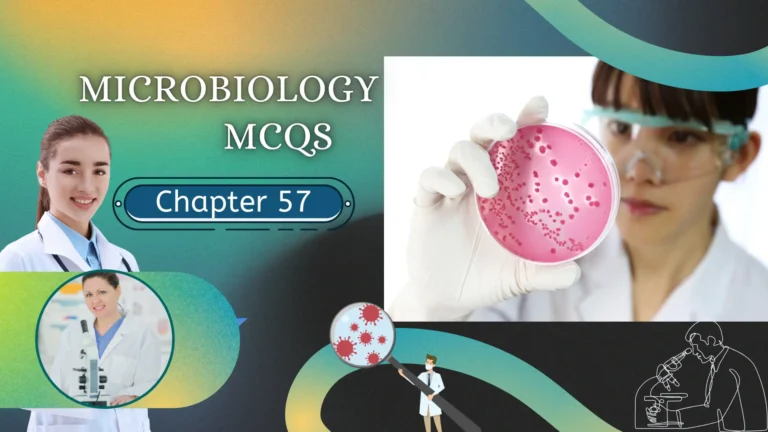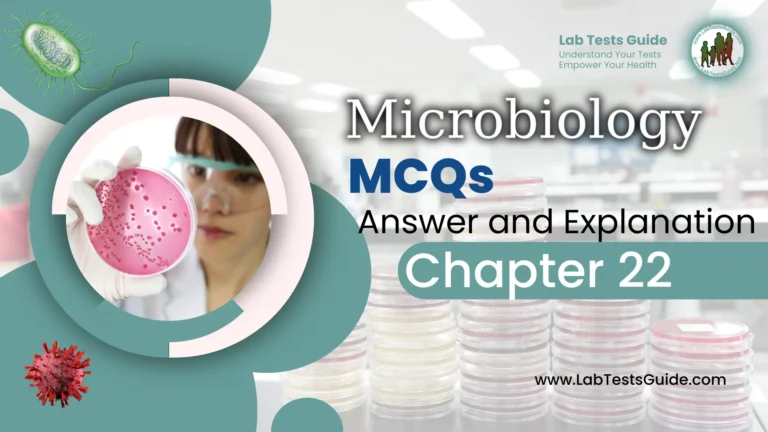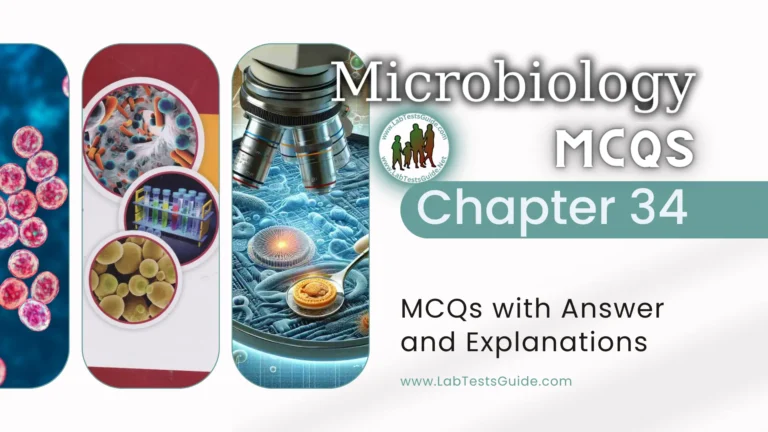Chapter 8: Nursing MCQs for Exams, Interviews and Entry Tests
5000 Plus Nursing MCQs for Exams, Entry Test and Job Interviews. MCQs are an important tool used in nursing education to test the knowledge and understanding of nursing students. These questions can cover a wide range of topics related to nursing practice, such as anatomy and physiology, pharmacology, nursing ethics, nursing theories, and more. MCQs are often used in nursing exams and assessments to evaluate students’ comprehension and ability to apply theoretical concepts to real-world scenarios.

351 to 400 MCQs for Nursing Exams, Interviews and Entry Tests
These questions can cover a wide range of topics related to nursing practice, such as anatomy and physiology, pharmacology, nursing ethics, nursing theories, and more.
351 to 400 MCQs
- Varicosities are usually examined:
- With the patient standing ✔
- With the patient lying flat
- With the patient in the left lateral position
- After the patient has had a hot bath
- Vascular competency can be tested by:
- Perthes’ test
- Trendelenburg test ✔
- Von Willebrand test
- Needle biops
- Pneumocephalus occurs when:
- Air enters the cranium ✔
- The patient also has pneumonia
- The head is tilted below heart level
- There is raised intracranial pressure
- Reasons for craniotomy include:
- Biopsy of tissue
- Evacuation of haematoma
- Clipping of aneurysm
- All of the above ✔
- An aneurysm is:
- A bulging in the weak wall of an artery ✔
- A bulging in the wall of a vein
- A bulging in the weak wall of the heart
- A bulging in the pleural cavity
- Most early complications in postoperative craniotomy occur within:
- The first week after surgery
- The first 6 hours after surgery ✔
- The first month after surgery
- The first 8 hours after surgery
- The signs and symptoms of raised intracranial pressure include:
- Hypotension and tachycardia
- Hypertension and tachycardia
- Hypertension and bradycardia ✔
- Hypotension and bradycardia
- The circle of Willis is located:
- At the base of the brain ✔
- In the spinal column
- Within the dura mater
- Within the pia mater
- The term hemiparesis refers to:
- Weakness of the eyelid
- Inability of the patient to use their sense of smell
- Weakness below the level of the chin
- Weakness on one side of the body ✔
- Causes of aneurysm can include:
- Hypertension
- Trauma
- Genetics
- All of the above ✔
- The appendix is located in:
- The left antecubital fossa
- The left iliac fossa
- The right antecbuital fossa
- The right iliac fossa ✔
- The appendix is usually:
- 1–2 cm long
- 5– 10 cm long ✔
- 10–12 cm long
- 12–15 cm long
- Appendicitis in the UK is the most common cause of:
- Urinary tract infection
- Ectopic pregnancy
- Acute abdomen ✔
- Constipation
- Side effects of antibiotics can include:
- Diarrhoea
- Rash
- Nausea and vomiting ✔
- All of the above
- A hemicolectomy results in the:
- Removal of all of the colon
- Removal of half of the colon ✔
- Formation of a colostomy
- Formation of an ileostomy
- The large intestine is approximately:
- 0.5 m long
- 1.0 m long
- 1.5 m long ✔
- 2.0 m long
- Heparin is a form of:
- Analgesia
- Anticoagulant ✔
- Antibiotic
- Antispasmodic
- Paralytic ileus can cause:
- Dumping syndrome
- Allergy
- Vomiting ✔
- Infection
- In bariatric surgery, gastric stimulation involves:
- External abdominal massage
- The insertion of an inflatable gastric balloon
- The insertion of a pacemaker device ✔
- The application of TENS
- In adjustable gastric banding:
- An inflatable gastric balloon is inserted
- The surgeon places a constricting ring around the stomach, below the gastro-oesphageal junction ✔
- The surgeon places a constricting ring around the upper oesophagus
- The surgeon places a constricting ring around the duodenum
- Micronutrient deficiency:
- Is n expected postoperative problem
- Only occurs where person’s BMI is in excess of 45
- Is a potential postoperative problem ✔
- Never occurs
- Gastric surgery:
- Is not available on the NHS
- Can only be performed in specialised centres
- Is risk free
- None of the above ✔
- Arthroscopy:
- Is considered major surgery
- Is considered minimally invasive ✔
- Is risk free
- Causes arthritis
- The medial meniscus:
- Is located on the inside of the knee ✔
- Is located on the outside of the knee
- Is also called the patella
- Is made of bone
- Medial and lateral and collateral ligaments:
- Are prone to destruction
- Are also known as the patella
- Stabilise the knee from side to side ✔
- Do not afford any movement
- The key aim of meniscus surgery is to:
- Reduce swelling
- Prevent movement ✔
- Provide access to the patella
- Save the meniscus
- Transtibial amputation results in amputation at:
- The ankle
- Midcalf ✔
- Midthigh
- The knee joint
- The most common reason why amputation is performed is:
- Due to peripheral vascular disease ✔
- Due to trauma
- As a result of infection
- Due to congenital disease
- One of the major challenges of amputation is:
- Regaining balance
- Overcoming stigma ✔
- Susceptibility to trauma
- Risk of osteomyelitis
- Major concerns in the postoperative period are:
- Insomnia
- Haemorrhage and oedema ✔
- Malnutrition
- Constipation
- The lamina is found:
- On the anterior aspect of the vertebra
- On the posterior aspect of the vertebra ✔
- On the lateral aspect of the vertebra
- In the spinal canal
- Sciatica occurs:
- When the person sits for too long
- When nerves in the leg are inflamed
- When nerve pain is transmitted down a lower extremity ✔
- If there is any neuritis
- Cauda equina syndrome is:
- A surgical emergency ✔
- A medical emergency
- Related to hypertension
- Related to hypotension
- Cervical, thoracic and lumbar laminectomy is often performed on:
- People who are already paralysed
- Those with spinal stenosis ✔
- People who have a poor prognosis
- Those who are unfit for other type of spinal surgery
- Oxytocin is:
- A hormone that stimulates testicular activity
- A carcinoma of the uterus
- Responsible for stimulation of the uterus ✔
- A male sex hormone
- The pituitary gland is also known as:
- The policeman of the brain
- The blood–brain barrier
- The micro gland
- The master gland ✔
- In the first 24 hours post hypophysectomy the nurse checks for:
- The person’s inability to feel their toes
- The warm and sensation of the lower limbs
- Extraocular movements ✔
- All of the abov
- Transsphenoidal hypophysectomy is also known as:
- Endoscopic transsphenoidal resection ✔
- Pituitectomy
- Rhinoplasty
- Parahypophysectomy
- Excessive production of the thyroid hormone is known as:
- Hyperparathyroidism
- Hypoparathyroidism
- Hyperthyroidism ✔
- Hypothyroidism
- Graves’ disease is:
- A malignant tumour
- A benign tumour
- An infection
- An autoimmune disorder ✔
- Causes of hypothyroidism include:
- Thyroid cancer, viral thyroiditis, postpartum thyroiditis
- Thyroid cancer, brain tumour, postpartum thyroiditis
- Thyroid cancer, viral thyroiditis, meningitis
- Thyroid cancer, viral thyroiditis, postpartum haemorrhage ✔
- Carbimazole is:
- A drug used to reduce anxiety
- A type of radiotherapy
- A drug used to reduce thyroid function ✔
- ]A drug used to increase thyroid function
- Orchidectomy may be performed to:
- Treat prostate cancer
- Treat breast cancer
- Treat testicular cancer
- All of the above ✔
- Inguinal orchidectomy is:
- Performed only on those men who require bilateral orchidectomy
- Performed only on those men who require unilateral orchidectomy
- Performed under general anaesthetic ✔
- Performed under local anaesthetic
- Testosterone:
- Is a male sex hormone ✔
- Is a female sex hormone
- Is present only in pubescent males
- All of the above
- Post orchidectomy the man:
- Will be infertile
- Will be unable to orgasm
- Can only father children if he has banked sperm preoperatively
- None of the above ✔
- Another name for vasectomy is:
- Orchidectomy
- Vasotomy
- Sterilisation ✔
- Oophorectomy
- The two types of vasectomy are:
- Direct and indirect
- Incision and non-incisional ✔
- Incisional and direct
- Non-incisional and indirect
- The term azoospermia refers to:
- Inability to produce sperm
- Reduction in the amount of sperm produced
- No sperm produced ✔
- Defective sperm production
- Spermatogenesis refers to:
- The process in which sperm are produced
- The production of excessive sperm
- The production of sperm ✔
- None of the above
The importance of MCQs in nursing education cannot be overstated. Nursing is a demanding and complex field that requires a high level of knowledge and skill. Nurses are responsible for the care of patients, and they must be able to make informed decisions quickly and effectively. MCQs help to ensure that nursing students are adequately prepared for the challenges they will face in their careers by testing their knowledge of the key concepts and principles that underpin nursing practice.
One of the primary benefits of MCQs is that they provide a standardized way of assessing nursing students’ knowledge. Unlike open-ended questions or essay questions, which can be subjective and difficult to grade consistently, MCQs are designed to be objective and straightforward. Each question has a clear right or wrong answer, which makes it easier for instructors to evaluate students’ performance and compare their results to those of their peers.
Another advantage of MCQs is that they can be used to test a broad range of knowledge and skills. Nursing MCQs can cover a variety of topics, from basic anatomy and physiology to complex pharmacology and nursing interventions. This allows instructors to evaluate students’ understanding of the full spectrum of nursing practice and identify areas where they may need additional support or instruction.
MCQs can also be used to assess different levels of learning. For example, some questions may test students’ recall of basic facts and concepts, while others may require them to apply their knowledge to solve a problem or make a clinical judgment. By using a mix of different types of questions, instructors can get a more comprehensive picture of each student’s strengths and weaknesses and tailor their instruction accordingly.
There are some potential drawbacks to using MCQs in nursing education, however. One concern is that MCQs may not accurately reflect the complexity of nursing practice. Nursing is a field that requires a high degree of critical thinking, problem-solving, and clinical judgment, and MCQs may not fully capture these skills. Additionally, some nursing students may struggle with multiple-choice questions, particularly if they have learning disabilities or other challenges that affect their ability to process information quickly.
Despite these concerns, however, MCQs remain an important tool in nursing education. They provide a standardized and objective way of assessing nursing students’ knowledge, and they can cover a broad range of topics and levels of learning. With careful design and implementation, MCQs can be an effective way to evaluate nursing students’ performance and ensure that they are adequately prepared for the challenges they will face in their careers.
Possible References Used







